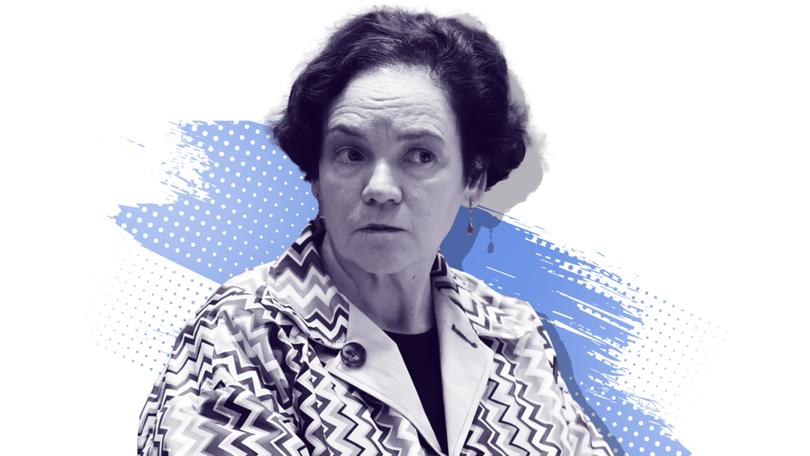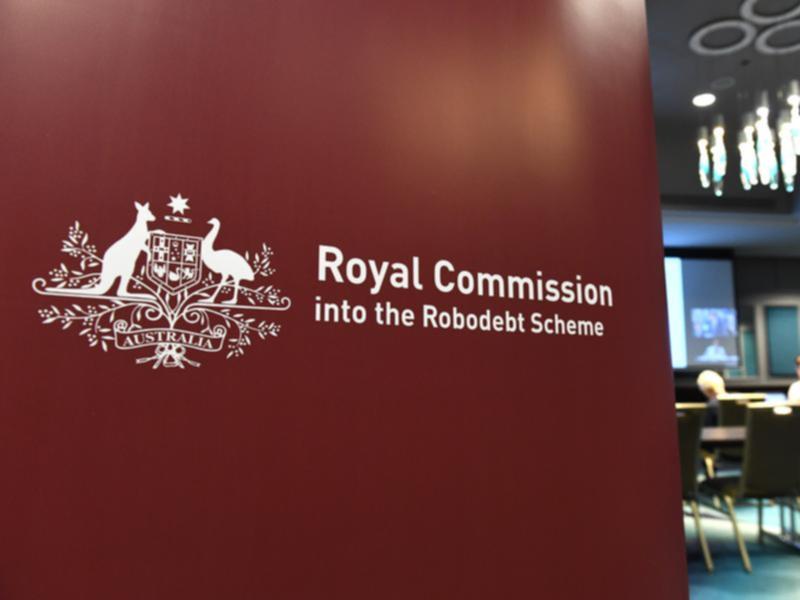BILL SHORTEN: Don’t feel sorry for politicians & bureaucrats who facilitated unlawful robodebt scheme
BILL SHORTEN: We can never fully undo the harm of Robodebt, but we can at least promise those who went through it and everyone else — never again.

Last week, the former secretary of both the Department of Human Services and the Department of Social Services, made a remarkable intervention into the Robodebt scandal.
Kathryn Campbell was interviewed by The Australian newspaper after the Australian Public Service Commission, independently of the Government, released the findings of a 15-month review of the information discovered by the Robodebt Royal Commission.
The APSC found that 12 public servants had breached the code of conduct of the Australian Public Service on no less than 97 occasions. Ms Campbell was one of only two public servants the APSC Commissioner felt it was necessary to name in their findings.
Sign up to The Nightly's newsletters.
Get the first look at the digital newspaper, curated daily stories and breaking headlines delivered to your inbox.
By continuing you agree to our Terms and Privacy Policy.But in her interview, Ms Campbell said she was the scapegoat for Robodebt.
The term scapegoat first appears in the Bible in the Book of Leviticus, where a goat would be released into the wildness bearing all the sins of the community.
In modern days, a scapegoat is a person who is wrongly blamed for the wrongdoings mistakes or faults of others.
There were 430,000 scapegoats for Robodebt. They are our fellow Australian citizens who had unlawful debt notices raised against them by the most powerful institution in Australia, the Federal Government.
The senior bureaucrats and Coalition ministers are not scapegoats. They presided over an unlawful scheme raising debts against vulnerable Australians.

These 430,000 people were simply exercising their democratic rights as Australian citizens who periodically needed to access our safety net.
Robodebt was based on the fallacy that there was a mountain of gold to be made from slapping debt notices on innocent Australians.
It was fool’s gold. The debts never existed — they simply shamed welfare recipients and treated them as second-class citizens to fill a budget hole.
Robodebt was political from the get-go. It demonised Australians who needed our welfare safety net and treated them as people for whom we should be suspicious.
Most public servants in Australia absolutely hope that Robodebt will never occur again. They were horrified.
I know this because, as Minister for the National Disability Insurance Scheme and Government Services portfolios, I have tens of thousands of public servants in the agencies I oversee, and I have spoken to many of them.
Robodebt is the largest stain on public administration in the history of the Commonwealth of Australia.
Robodebt saw 430,000 vulnerable Australians shaken down by their own government for unlawfully raised debts. They had the onus of proof reversed and were then treated as criminals when they had the temerity to complain about what they were being accused of.
It has been said that the crusade to find justice for Robodebt victims, find out why it happened, will have a chilling effect on innovation in the Australian Public Service.
There is no innovation that justifies breaking the law. There is no innovation in the public service that should ever warrant or be justified by breaking the law.
The tragedy of Robodebt at its heart, both in the commissioning of it and then the maladministration for four years, was that there was never any empathy for people who rely on our welfare system.
Robodebt was a shocking betrayal and failure of empathy towards vulnerable people who needed support from the Government.
The real scapegoats were the people for whom their Government broke the law to raise debts against them.
The victims, their loved ones and those who fiercely advocated for them are the only people that matter.
The Robodebt Royal Commission, which prompted the APSC review, heard evidence from many brave victims, advocates and public servants.
One public servant, Colleen Taylor, a long-time, conscientious, decent employee of Centrelink, showed incredible courage when she wrote directly to the Department of Human Services secretary, Ms Campbell, to correct her about a message she sent to the department.
“As a compliance unit,” Ms Taylor wrote, “we should not be the ones stealing from our customers.”
Ms Taylor was a study in integrity and empathy against a backdrop of smokescreens and indifference. She never sort high wages or recognition.
Highly respected welfare advocates Genevieve Bolton, Katherine Boyle and Catherine Eagle gave evidence at the Royal Commission that they repeatedly put forward their concerns about the unreliability of the automated averaging process.
They revealed some Robodebt victims were fleeing domestic violence and were homeless, and the first time they knew they supposedly owed money, was when the debt collectors found them.
Then there was those who paid the ultimate price.
Jennifer Miller and Kath Madgwick, who both gave evidence at the royal commission, lost their sons to Robodebt.
Let me be clear — Robodebt did not happen in a bubble.
Throughout the Robodebt years, there were:
- 19,780 internal reviews by people within the system complaining about Robodebt
- 4339 external reviews to the AAT related to Robodebt
- A Parl Info search reveals 713 mentions of Robodebt in Hansard between February 7 2017 and November 12 2020.
- Add to that the fact a literature search reveals tens of thousands of articles in the media.
- Not to mention a missing $1 million PwC report that was mysteriously stopped before being finalised.
And yet, the former Liberal government and senior public servants with the power to stop the scheme continued to defend it.
What we saw day after day at the Robodebt Royal Commission was senior public servants, desperate to please their ministers, and in doing so, acting in contravention to the principles of “honesty and integrity” that underpin their own code of conduct, by avoiding giving them the frank and fearless advice that they needed to hear.

It is always better to get bad news early than worse news later.
This is not to say that there aren’t highly skilled, professional and honest officials within the public service — in fact most are.
But it shouldn’t have to take Federal Court action, then a class action, then a change of government, and finally a royal commission, to address this massive failure of public administration.
This shameful chapter is still not closed. The Albanese Government has been working hard to fix the system from the inside and there are still questions that need to be answered.
We are fulfilling our commitment to put people back at the centre of the work of government and invest in better services for the Australian community.
We will continue to implement reforms to strengthen the Australian Public Service and bolster the powers of oversight agencies to ensure a failure like the Robodebt scheme can never happen again.
The Government’s response to the Robodebt royal commission includes additional funding for the Commonwealth Ombudsman to boost its oversight of government agencies, and new funding to reinstate the Administrative Review Council to support better decision‑making across government.
We can never fully undo the harm, but we can at least promise those who went through it and everyone else — never again.
